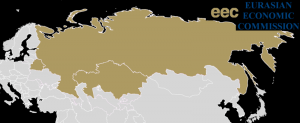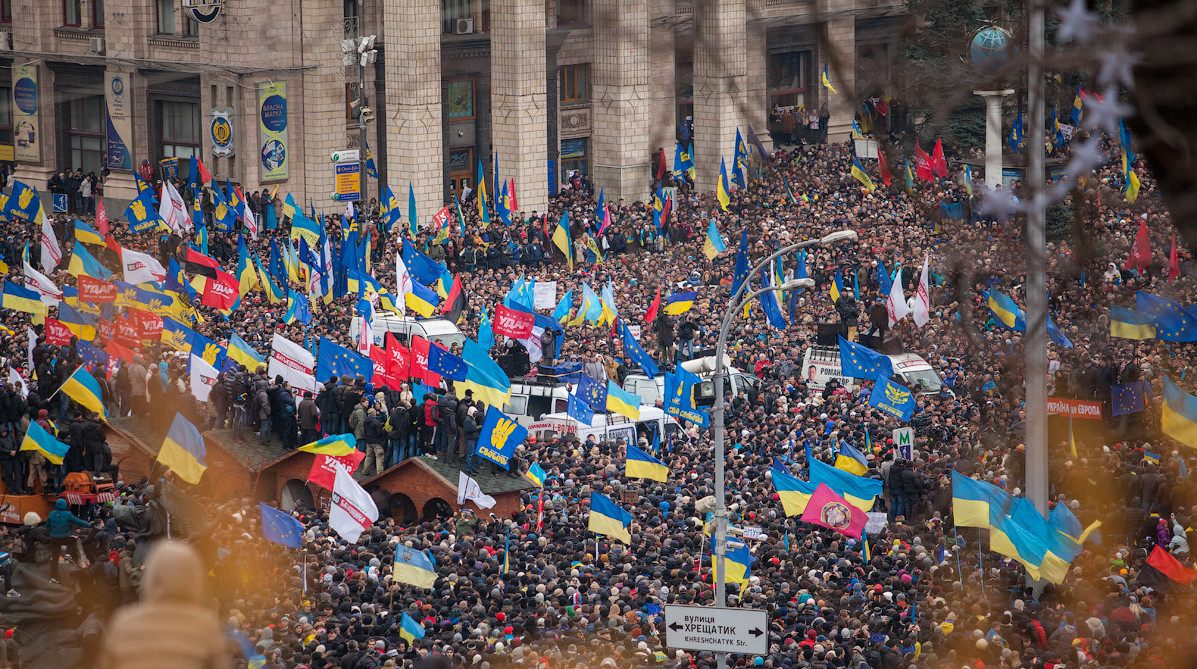Ukrainian President Viktor Yanukovych’s current position is challenging at best. His government now has to decide whether to finally sign the free-trade agreement with the EU (and face Putin’s wrath), or to continue accepting Russia’s deal of $15 billion (and put up with Euromaidan’s fury). He also has to address the international pressures to liberate former Prime Minister Yulia Tymoshenko, as well as deal with Euromaidan activists who accuse him of illegitimately passing anti-protest laws, using violence against them and not serving Ukraine’s civil interests. And, in case that was not complicated enough, the resignation of Prime Minister Mykola Azarov and his cabinet last week has effectively left him without an administrative government.

It is evident that the following weeks will be decisive for Ukraine’s future: strengthening her ties with the EU could eventually result in her membership, while deeply severing her ties with Russia. On the other hand, integrating into the Eurasian Economic Commission would most likely cause further civil unrest, but would protect Ukraine’s trade relations with Russia (which currently represents 25.6% of its total exports, and 32.4% of imports). Considering the decision ahead of Ukraine, it is important to bear in mind the political tensions between, and within, the three parties.
Euro-Ukraine: A double-edged sword?
Although the free-trade agreement was not finalized until 2012, EU-Ukraine efforts to strengthen their relationship go back to 1994. However, the EU has put the signing of the treaty on hold until concerns over Ukraine’s rule of law are addressed. In October 2011, several international organizations qualified the imprisonment of pro-European Ukrainian PM Tymoshenko (under charges of abuse of power and misappropriation of public funds) as a “politically motivated” case of “selective justice.” Thus, one of the EU’s conditions to Ukraine is to liberate and give immediate medical attention abroad to Tymoshenko, who has been diagnosed with a spinal disc herniation.
The Tymoshenko affair remains a sensitive issue for Yanukovych’s administration, given that the former prime minister was indeed found guilty of abusing her power in 2011. Revising the verdict would raise questions about the EU interfering in the Ukrainian impartation of justice. Moreover, Ms. Tymoshenko has frankly already vanished from Ukrainian media and is not a strong source of domestic unrest. Nevertheless, EU representatives have stated several times that if Ukraine does not address the Tymoshenko affair, their agreement will remain inconclusive.
Russo-Ukraine: Between the sword and the wall
Russia is terrified of losing strategically located Ukraine to her century-old antagonist, the EU. To prevent this, Russia has been warning Ukraine through economic restrictions. Russia’s changes in imports regulations has led to a drop of $1.4 billion (or a 10% year-on-year decrease) in Ukraine’s exported income and of about 5% (compared to 2012) in its industrial production.
Obviously, Ukraine cannot sign the agreement with the EU until she is guaranteed that her economy will be protected. Yet the only support that the EU has proposed is a $15 billion loan from the International Monetary Fund. Such a loan would come with the usual SAP conditions, including an increase in the price of gas by a shocking 40%. The now ex-PM Azarov declared that such conditions were too harsh on Ukraine.
On the other hand, Russia has proven to be very persuasive too. With the (apparently unconditional) $15 billion Russian grant, as well as the lowering of gas prices, taking sides with the Eurasian Commonwealth has been very appealing to the Ukrainian government. Nevertheless, now that PM Azarov has resigned, President Putin announced that the bailout deal will not be fulfilled until Ukraine forms a new government.
Ukraine’s internal tensions
The geopolitical tensions within Ukraine should not go unstressed. With the country’s opinion and cultural traits historically divided between pro-European (West) and pro-Russian (East), it has not been easy for any Ukrainian government to reach agreements.
Moreover, Ukraine has a history of internal conflicts related to governance and transparency. The Orange Revolution developed in 2004 when civilians denounced fraud in the Presidential elections. Surprisingly (or perhaps not so much), one of the leading figures in the protests was Tymoshenko, while the accused was current President Yanukovych, who then eventually had to cede the presidency to the opposition. Even though Yanukovych became president again in 2010, this unpopular precedent will definitely not help him.
More recently, the Euromaidan civil movement started on November 21, 2013 (exactly nine years after the Orange Revolution). Since then, not only has it gained strength in Ukraine, but it has also attracted a remarkable amount of international attention. Euromaidan demands for the integration of Ukraine with the EU, and more recently has been calling for Yanukovych’s resignation.
Violent clashes between the Euromaidan and Berkut (Police Special Forces) have taken place in the last month, with six deaths reported so far. On January 17, the Verkhovna Rada (Parliament) passed through a “quick show of hands” an anti-protest law that jailed anyone who blocked government buildings, and banned the use of helmets and masks in rallies. The public outcry resulted in the Rada repealing the law within days of its approval, and granting amnesty to detainees. In the face of increasing protests, PM Azarov presented his resignation on January 28.
Ukraine’s Dilemma: The lesser of two evils?
The fact that Ukraine is in the middle of two giants fighting over her has quickly become a lose-lose situation. In order to secure the deal, the EU would have to guarantee Ukraine’s economic protection from Russia’s anger. If it chooses Russia, Yanukovych’s administration will be taking a decisive step away from the long-desired EU membership and will have to confront the Euromaidan on this issue. In either case, Ukraine will have to address the Tymoshenko affair both domestically and internationally, which will potentially lead to her liberation.
Regardless of the decision Yanukovych makes concerning Ukraine’s external policy, the domestic scenario does not look good for him. In fact, the real question now is whether or not he manages to stay in office until 2015. Violence has proven to be ineffective against the protesters, and with the whole world’s eyes upon Kiev, it would be unwise to keep trying such methods. If he wants to retain the presidency until elections, Yanukovych will have to address the frictions with the Euromaidan, and come up with a compromise that satisfies the frustrated population.
